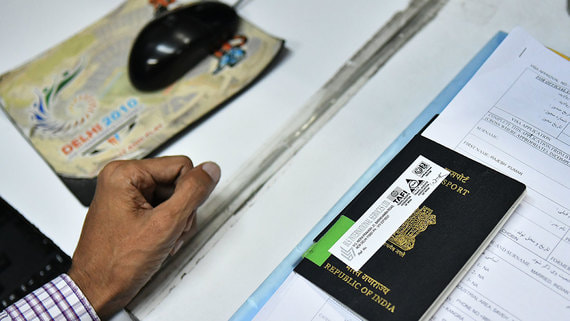The scandal between India and Canada is gaining momentum
[ad_1]

The operator of Indian visa centers in Canada, BLS International, announced that it will stop accepting visa applications from September 21, writes the India Today portal. Officially, this information, which he received from the Indian Embassy, is explained by “technical reasons,” but chronologically, the measure coincided with the development of a diplomatic scandal between the two countries. It began to develop rapidly after on September 18, Canadian Prime Minister Justin Trudeau, citing his intelligence data, accused Indian intelligence services of involvement in the June murder of oppositionist and Canadian citizen Hardeep Singh Nijjar on the territory of his country.
On September 19, Ottawa expelled senior Indian diplomat Pawan Kumar Rai, who Canadians believe headed the legal foreign intelligence station, the Research and Analysis Wing (RAW), in that country. At the same time, sources of the Indian publication Indian Express confirmed that Rai belonged to the special services. Indian authorities deny the charges, despite the fact that in this country Nijjar was considered a terrorist due to accusations of plotting the murder of a Hindu priest in Punjab. New Delhi also expelled a Canadian diplomat in retaliation. According to the Indian Foreign Ministry, this decision reflects the growing concern of the government of this country about “the interference of Canadian diplomats in our internal affairs and their participation in anti-Indian activities.” On September 21, both countries announced their desire to adjust the number of employees in each other’s diplomatic missions.
Sikhs are an ethno-confessional group (followers of Sikhism), numbering more than 20 million people in India. The national composition of Sikhs is dominated by Punjabis (residents of the Indian state of Punjab). The plans of Sikh separatists since the 1940s. achieve their independent Khalistan state, both in the Punjab and in theory and beyond in Northern India and Pakistan. Currently, the Sikh diaspora in Canada numbers at least 700,000 people and plays a prominent role in local economic and political life.
Hardeep Singh Nijjar, 45, was shot and killed on June 18, 2023 in Surry, British Columbia. The suspects, described as “large build men wearing masks,” were able to flee the scene. Nijjar illegally immigrated to Canada back in the mid-1990s, receiving citizenship of this country only in 2007. He called the policy of the Indian authorities against Sikhs genocide, which he also stated in the UN bodies. The Indian government considered him the leader of the Khalistan Tigers separatist group and issued several arrest warrants for him, but never obtained his extradition from Ottawa.
In addition, according to Global News, the Canadian investigation is directly related to the suspension of negotiations on concluding a new trade agreement between Canada and India on September 1, 2023. As Trudeau himself said during a speech in parliament, he reported Canadian intelligence information to the Prime Minister of India Narendra Modi on September 10 on the sidelines of the G20 summit in New Delhi. As Reuters previously wrote, Modi also expressed his concern to Trudeau about the Sikh protests in Canada, in particular about the procession depicting the assassination of former Indian Prime Minister Indira Gandhi in 1984 by her bodyguards. It is believed that it was her revenge for Operation Blue Star with the storming of the Golden Temple in Amritsar, a Sikh shrine that was turned into a base for Sikh separatists. In their struggle, the Sikhs also resorted to other terrorist attacks, in particular the explosion of a Boeing 747 plane on June 23, 1985, which was flying along the Montreal-London-Delhi-Bombay route. The last noticeable outbreak of Sikh terror in India, with killings by motorcycle terrorists wearing masks of Hindu preachers, was recorded in 2016–2017.
The limiting level of escalation in relations between Canada and India may be a decrease in the level of diplomatic relations between them, but so far this probability is not very high, says Alexey Kupriyanov, head of the South Asia and Indian Ocean region group at IMEMO RAS. Indians have been expressing their dissatisfaction with Canada’s attitude towards their demands on the Sikh issue for a very long time. This diaspora, in turn, has become very influential in Canada in recent decades, to the point that their representative Harjit Sajjan became Minister of Defense in 2015. Ottawa tried to balance for many years – on the one hand, the Canadian government made contact with New Delhi, maintaining good relations with India, and on the other, no government could afford anti-Sikh rhetoric. Trudeau succeeded in this to the worst extent, the expert says, despite trips to India, since cooperation between the intelligence services on this issue has almost come to naught. At the same time, in terms of trade and technology, Canada and India are not currently important partners for each other, and their conflict does not affect the interests of the United States, Kupriyanov concludes.
[ad_2]
Source link








